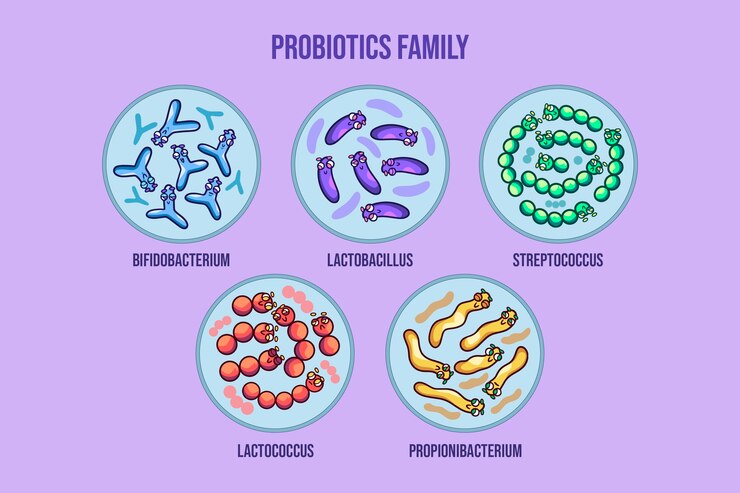Revolutionizing Drug Development with Peptide Chemistry: An In-depth Look
The Role of Peptides in Modern Drug Development
Peptides, or short chains of amino acids linked by peptide bonds, have emerged as critical components in current medication research. Their unique ability to interact with high specificity and potency biological targets makes them a versatile tool in biomedical research and therapy. Due to their biocompatibility and targeted nature, peptides are leveraged in various therapeutic areas, including oncology, endocrinology, and infectious diseases. For instance, cancer therapies increasingly rely on peptides to target and destroy malignant cells while sparing healthy tissue. Similarly, peptide-based treatments are being developed to manage metabolic disorders by modulating hormone levels. Many biopharmaceutical companies invest in custom peptide synthesis to provide more targeted and effective medicines for complicated health issues.
Cutting-Edge Techniques in Peptide Chemistry
Advancements in peptide chemistry are revolutionizing the way peptides are synthesized, leading to more effective and stable drugs. Fundamental innovations such as solid-phase peptide synthesis (SPPS) and microwave-assisted synthesis have significantly improved the efficiency and capabilities of peptide production. These techniques enhance the quality of peptides but make the thesis process more scalable and commercially viable. Peptide Chemistry involves intricate yet fascinating methods that enable the synthesis of peptides with high purity and yield. The ongoing research is continuously pushing the boundaries of what is possible in peptide synthesis, allowing for the creation of more complex and potent therapeutic agents.
Solid-Phase Peptide Synthesis (SPPS)
One of the most significant innovations in peptide chemistry is Solid-Phase Peptide Synthesis (SPPS). This technology allows for the sequential construction of peptides on a solid platform, simplifying the purification procedure. SPPS has become the standard method for peptide synthesis because of its versatility and efficiency. It enables researchers to create longer and more complex peptide chains with fewer impurities, which is crucial for developing effective peptide-based drugs. This approach has been critical in advancing peptide therapies, allowing the production of previously challenging synthesizing peptides. Additionally, SPPS has facilitated the development of novel peptides with improved pharmacokinetic properties, such as enhanced stability and bioavailability.
Microwave-Assisted Peptide Synthesis
Another breakthrough in peptide chemistry is microwave-assisted peptide synthesis. This method accelerates reaction rates and improves the overall quality of the peptides produced. Using microwave energy makes the synthesis process significantly faster and yields higher-quality peptides. This technique reduces the time required for peptide synthesis from days to hours, making it a preferred choice for many researchers. The ability to quickly produce high-quality peptides is essential for accelerating drug development and bringing new peptide-based therapeutics to market. Furthermore, microwave-assisted synthesis has been found to improve peptide synthesis efficiency by minimizing side reactions and boosting product yield. This innovation has revolutionized the field of peptide chemistry, enabling the rapid and cost-effective production of complex peptide sequences.
Regulatory Hurdles and Challenges
Despite their promise, peptide-based drugs face significant regulatory challenges. The complexities of their synthesis, stability, and delivery mechanisms often require rigorous testing and validation. Peptide-based medications must meet severe requirements set by regulatory agencies such as the FDA to be approved. Insights from the FDA’s guidelines on peptide drug products shed light on the regulatory landscape and the pathways for approval. These standards are critical for guaranteeing the safety and efficacy of peptide therapies. Still, they also provide significant challenges for developers, necessitating extensive data and rigorous testing procedures to demonstrate the drug’s safety and effectiveness. Obtaining regulatory approval for medicines made from peptides typically includes thorough preclinical and clinical trials to evaluate the drug’s pharmacokinetics, pharmacodynamics, and possible toxicity. In addition, regulatory bodies might mandate in-depth research on the production process to guarantee the uniform quality and purity of the end product.
Future Prospects of Peptide Therapeutics
The future is exceedingly bright for peptide therapeutics. With ongoing research and continuous innovation, new peptide-based drugs are anticipated to hit the market, offering solutions for some of the most challenging medical conditions. The integration of computational methods and AI in peptide design is set to accelerate this progress even further. These advancements promise to make peptide synthesis more precise, cost-effective, and scalable, ultimately leading to a broader range of therapeutic applications. Researchers are investigating novel approaches to improve the stability and delivery of peptide therapies, addressing the challenges that have previously limited their efficacy. As technology advances, the potential applications of peptide-based drugs will expand, offering new hope and treatment options for patients worldwide. For example, researchers are investigating the use of nanoparticles and other novel delivery systems to improve the bioavailability and targeted delivery of peptide therapeutics. Advances in peptide engineering also pave the way for developing peptide-based vaccines and diagnostic tools, further expanding the scope of peptide applications in healthcare.
Conclusion: Peptides at the Forefront of Pharmaceutical Innovation
Peptide chemistry is undoubtedly transforming the landscape of drug development. As researchers and pharmaceutical companies continue exploring its vast potential, we expect more peptide-based therapeutics to address unmet medical needs. The fusion of science and technology drives innovative healthcare solutions forward, making peptide-based drugs a cornerstone of modern medicine. Stay tuned for more breakthroughs in this exciting field as the advancements in peptide chemistry pave the way for the next generation of life-saving therapies. With continued investment and collaboration between academic research institutions, pharmaceutical companies, and regulatory agencies, the future of peptide therapeutics looks promising. The fast advancements in peptide chemistry can potentially discover new treatment options, enhance patient outcomes, and ultimately revolutionize healthcare approaches.







